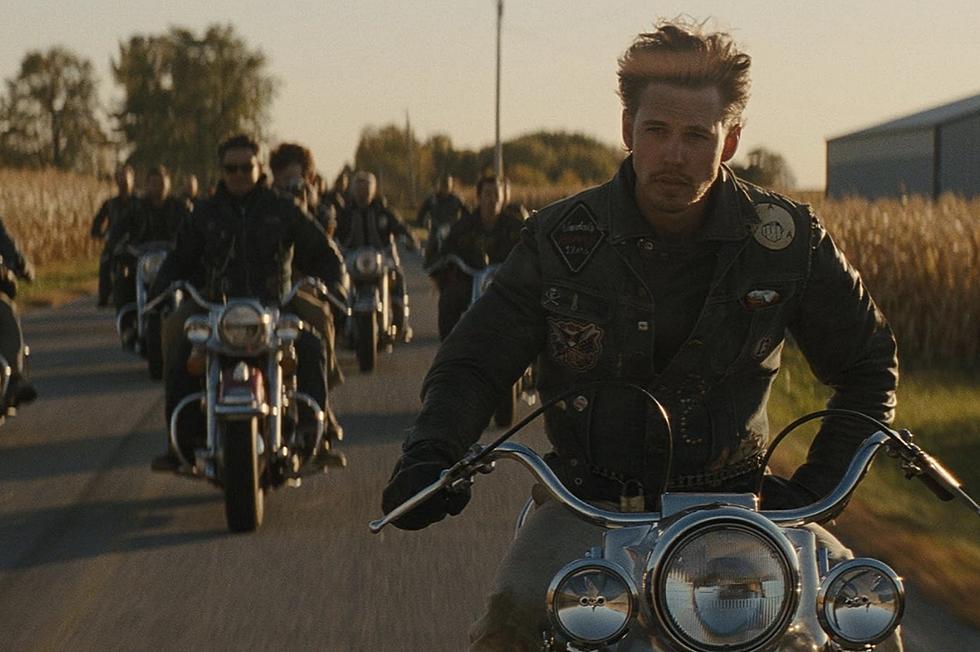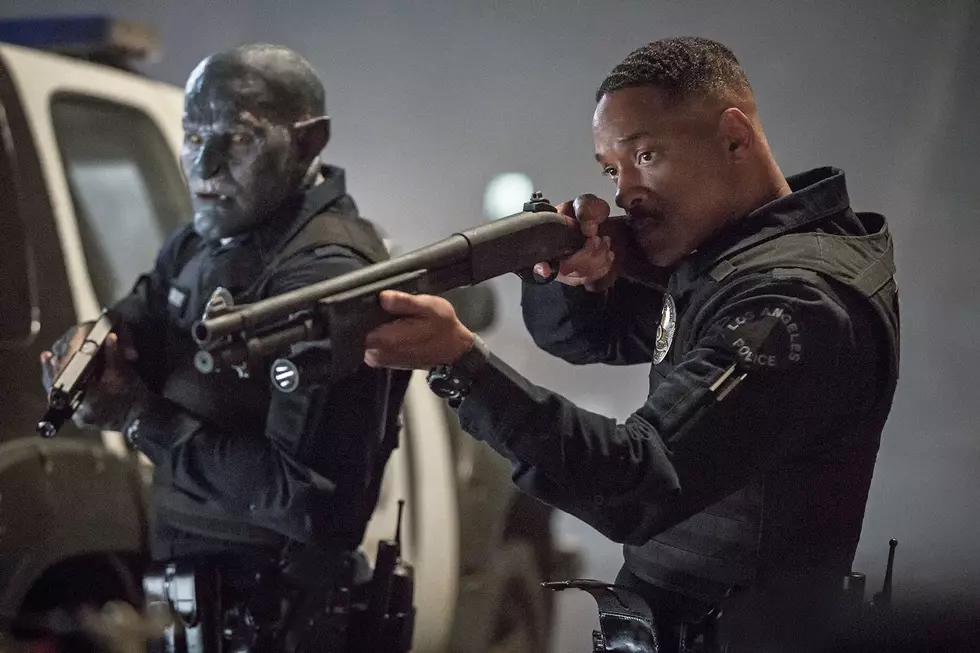
Jeff Nichols on ‘Loving’ and What the Historical Couple Can Teach Us About Political Debates
Biopics can often feel pedagogic or overly political. No one wants to go to the movies for a dry history lesson – that’s what high school is for. The strength of Loving, a new biopic about Richard and Mildred Loving, is that filmmaker Jeff Nichols puts the political talk in the background to focus on the in intimate relationship at the center of a groundbreaking U.S. Supreme Court case.
The Lovings are best known as the interracial couple who were arrested and charged with violating Virginia’s anti-miscegenation laws in 1958 after they wed in Washington D.C. They took their fight to the Supreme Court, a win that changed U.S. history and paved the way for a new future of marriage equality. But Richard and Mildred weren’t political activists; they said in interviews they weren’t trying to change history, but were fighting so their family could live in peace. In Loving, Nichols (Midnight Special) captures the hushed intimacy that forms the bond between Richard and Mildred, played by Joel Edgerton and Ruth Negga.
I caught up with Nichols over the phone, who told me how his own marriage informed his approach to the Lovings’ story and the message his film leaves us with in the wake of the 2016 Presidential Election. Nichols also shared some details in his Alien Nation remake (read more about that here) and reflected on parting ways with Warner Bros. over Aquaman.
It’s so refreshing to see a historical biopic that isn’t full of courtroom drama and legal jargon. Was it important to you that this movie focused more on the Lovings’ relationship than the politics?
Yeah. That just felt representational of the real Richard and Mildred. They were not political people, they really didn’t have an agenda. In staying married, and also in getting married, they weren’t working against some big idea. I think they genuinely fell in love with one another. So to represent that in a film, it makes sense to focus on the details and the specifics of it. The court case, while fascinating, they weren’t involved in the day-to-day process of that. They saw it kind of from arms-length distance if not further.
And I wanted to make a film that followed these people because they’re what represents what’s important about political debates. When we get into political or religious debates we start thinking about themes or we start thinking about big ideas, but ultimately I think people just start thinking about themselves and what they’re comfortable with and what they think is right and wrong in their moral compass. They lose track very quickly of the thing right in front of them, which are the people they’re talking about. And that’s what made sense of this, was to focus on the people at the center of it.
Right before you called I was reading a quote by Mildred where she says of their marriage, “We are not doing it because somebody had to do it and we wanted to be the ones, we are doing it for us.”
Right.
Did you look closely at their interviews to formulate how to approach their story?
Oh I poured over them. Nancy Buirski made this documentary The Loving Story and one of the first things that happened is she delivered me a hard drive with all of the archival footage that Hope Ryden did in the mid-’60s, every interview they ever gave. Every interview that Nancy did was all their friends and relatives and people that knew them and I had all the outtakes. I kind of steeped myself in all of this information. And you start to get a sense for these people.
For instance, there’s this one thing that happens in the outtakes of the archival footage that isn’t directly represented in the film, but it speaks very much to Richard. He’s being asked to recount the story that got them to this point, which was I think about a year away from the Supreme Court. He talks about the arrest and he talks about D.C. and he says, “She wrote a letter. Who’d you write that letter to?” [he asked Mildred]. She’s like, “Robert Kennedy.” And he’s like, “Yeah, she wrote a letter to Robert Kennedy.” And you’re like, “Wow, this man doesn’t remember who Robert Kennedy was!” [Laughs] And that’s very telling. It tells you something about his intellect and also something about his attention and focus, where his brain was at in the mid-’60s in relation to the Civil Rights Movement and the Kennedys and everything else. He just wasn’t – that’s not where he was.
So from that I extrapolated personality traits and details. This is what Richard would talk about, I don’t think this is what he would talk about, you know? There’s a repeated line quoted several times where Mildred’s talking about going up to D.C. to get married and she said, “Well Richard just said there was less red tape.” She said it in ways that was not rehearsed, like it wasn’t some political answer. I think genuinely she was 19-years-old and her husband told her, “Yeah, let’s go up there and get married, there’s less red tape.” I can just hear it coming out of his mouth. I think she believed it, and that’s a really important point because that means they didn’t have the conversation where, “Well, who are we going to make angry with this tactic? Who are we going to offend? Are we going to get in trouble?” Like, that scene didn’t happen in my mind because of that detail.
Romance stories can often succumb to histrionics so easily, but I feel like you maintain a sort of calm, respectful distance to the Lovings instead.
Well see, I would disagree. I think we get quite intimate with them.
There’s definitely intimacy.
Maybe it depends on how you define intimacy and how you define marriage and commitment. When I look at my own marriage, it’s definitely not the big moments, the anniversaries or I-love-yous. It really is all these small little moments in between where I feel the most love for my wife, or I feel the most support. It’s kind of in the nooks and crannies of that relationship where really commitment is born out, and ultimately love.
But it’s a deep love, it’s not that kind of flirty love you get in high school or something. It connects to different parts of your mind, body, and spirit. That’s kind of what I wanted to represent in Richard and Mildred, that’s what I felt like had to be going on for them to say some of the things they said. You know, “I’m not gonna divorce her.” He says that in the documentary several times. It doesn’t come off to me as a political statement, especially as a guy who didn’t know Robert Kennedy. That’s not what he’s doing. It came off as like a fundamental part of his being.
This is your first film based on real-life characters. Was there a difference in how you wrote them, compared to the fictional characters you’ve written?
I just wanted to get it right, or a semblance of what I thought right would be. A lot of these scenes are representational in that sense of what I thought they might say, or I thought that’s how it would go down. Some aren’t. Some are literally lifted out of transcripts, and sometimes I took lines from things they said and put them in different places. When Mildred’s over the sink with Grey Villet (Michael Shannon) and said, “We may lose the small battles and win the big war,” that was something that she said to Hope Ryden in a documentary. I just put it in a different place. You write that scene with a lot of confidence because you’re like, “Well I know this represents a thought that went through her mind at some point.”
It took a little getting used to as an approach to be honest because I know my fictional characters and I really love my fictional characters and care about them, because they’re all parts of me anyway. But with this there was a different degree of respect and a different kind of caution in that approach. Or maybe that’s the distance you’re talking about.
Do you think you’ll make another biopic in the future or return to fictional stories?
It all depends on the specifics. I could see myself doing anything in the future under the right circumstances with the right story. So absolutely. There actually is one biopic that I’m interested in. There’s actually a couple.
Can you share what those are?
No, because I don’t have the rights. But it all just depends on, do I relate to them? Do I understand them? Do I feel like I’m the right one to tackle it? There are a lot of great stories out there and I’ve gotten to the point now where people are sending me scripts that are really great, but you can look at them and read them and understand how they need to be executed, but you still may not be the right person for it. There has to be a real connection there. I spent four years on Loving. These aren’t casual commitments that you make. These are half-decade decisions that you make with your life, if not more. So it has to almost not be a decision, it almost needs to be innate.
Loving is opening just in time for the election. Do you want audiences to approach this film with the current political climate in mind?
Well look, I think we’re gonna need a big long shower after this election. We’re going to need an ideological bath. I think Loving will be there for us. What Richard and Mildred show us isn’t so much the answer at the end of the equation of how do we achieve equality. What they show us is how to have conversations about it, how to have the dialogue about it, which is what we’re going to continue to have after this election’s over. And what they’re telling us is, “Hey look at us, we didn’t bother anybody. We aren’t pushing an agenda on you, we’re just trying to live our lives. Think about us when you get on your soapbox and start talking about marriage equality or immigration. Just think about the lives at the center of these issues.” Maybe that helps temper the debate.
You passed on directing Aquaman, but in an ideal world, if you had full creative control to build a comic book movie from the ground up is there a particular story you’d be interested in doing?
Just that I passed on Aquaman is a strong term. We kind of just all agreed to go our separate ways is a better way of saying it, because they just had a different trajectory. I don’t know of a – no, there’s not one out there that I’ve always been dying to tell. There might be a few, I mean I grew up reading comic books. But where you’re correct is that if I could get my hands on it and build it from scratch, which in a weird way is what Alien Nation is offering me – there were no producers on it. They just gave me a title basically, and I’m off to the races. When I say that I hope a bunch of fans out there aren’t like, “Screw this guy!” But hopefully I’ll take care of them.
Will be a role for Michael Shannon in Alien Nation?
Gosh, I hope so!
Loving is now playing in select cities.
More From ScreenCrush









